
Asilah: The Jewel of the Moroccan Atlantic Coast
Asilah is a stunning coastal town in Morocco, known for its whitewashed buildings, vibrant murals, and rich history. Nestled on the Atlantic coast, Asilah offers a unique blend of Moroccan and Andalusian cultures, making it a charming destination for tourists. Wander through the Medina, where narrow streets are adorned with colorful street art. The town is famous for its annual International Cultural Festival, where artists from around the world come to paint the walls of the Medina, creating a living gallery. The Medina also offers a variety of artisan shops, cafes, and restaurants where you can sample local delicacies. The town's history is palpable as you explore its ancient ramparts and fortifications. These historical structures offer stunning views of the ocean and the town itself. Don't miss the chance to visit the Raissouli Palace, a beautiful example of Moroccan architecture that now serves as a cultural center. Asilah's beaches are another major draw. Paradise Beach, located just outside the town, is a serene spot perfect for swimming, sunbathing, and picnicking. The beach is less crowded than other Moroccan beaches, offering a more peaceful and relaxing experience. Whether you are an art lover, a history buff, or just looking for a tranquil retreat, Asilah provides a perfect getaway with its picturesque scenery, cultural richness, and warm hospitality.
Local tips in Asilah
- Visit during the International Cultural Festival in August to see the Medina's walls come alive with new murals.
- Try the local seafood in one of the many beachfront restaurants for a fresh and delicious meal.
- Take a day trip to Paradise Beach; it's a short taxi ride from the town and offers a more secluded experience.
- Explore the Medina early in the morning to avoid crowds and have a peaceful experience.
- Learn some basic French or Arabic phrases as English is not widely spoken.
Asilah: The Jewel of the Moroccan Atlantic Coast
Asilah is a stunning coastal town in Morocco, known for its whitewashed buildings, vibrant murals, and rich history. Nestled on the Atlantic coast, Asilah offers a unique blend of Moroccan and Andalusian cultures, making it a charming destination for tourists. Wander through the Medina, where narrow streets are adorned with colorful street art. The town is famous for its annual International Cultural Festival, where artists from around the world come to paint the walls of the Medina, creating a living gallery. The Medina also offers a variety of artisan shops, cafes, and restaurants where you can sample local delicacies. The town's history is palpable as you explore its ancient ramparts and fortifications. These historical structures offer stunning views of the ocean and the town itself. Don't miss the chance to visit the Raissouli Palace, a beautiful example of Moroccan architecture that now serves as a cultural center. Asilah's beaches are another major draw. Paradise Beach, located just outside the town, is a serene spot perfect for swimming, sunbathing, and picnicking. The beach is less crowded than other Moroccan beaches, offering a more peaceful and relaxing experience. Whether you are an art lover, a history buff, or just looking for a tranquil retreat, Asilah provides a perfect getaway with its picturesque scenery, cultural richness, and warm hospitality.
When is the best time to go to Asilah?
Iconic landmarks you can’t miss
Asilah Tower
Explore Asilah Tower, a historic monument that reflects the exquisite blend of Moroccan and Portuguese architecture in the coastal town of Asilah, Morocco.
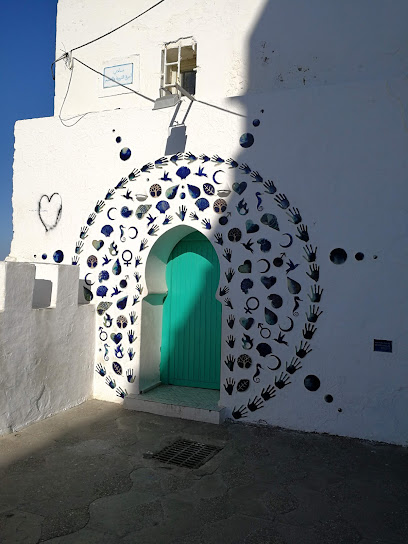
Assilah
Discover the enchanting coastal town of Assilah, where rich history meets vibrant art in a picturesque setting along Morocco's Atlantic coast.
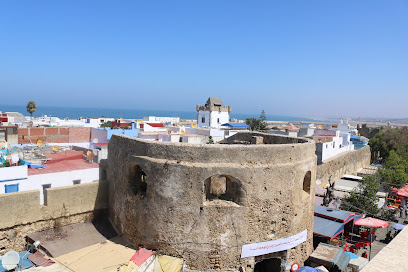
Krikia
Explore Krikia in Asilah: A stunning historical landmark blending rich culture, breathtaking views, and vibrant local artistry.
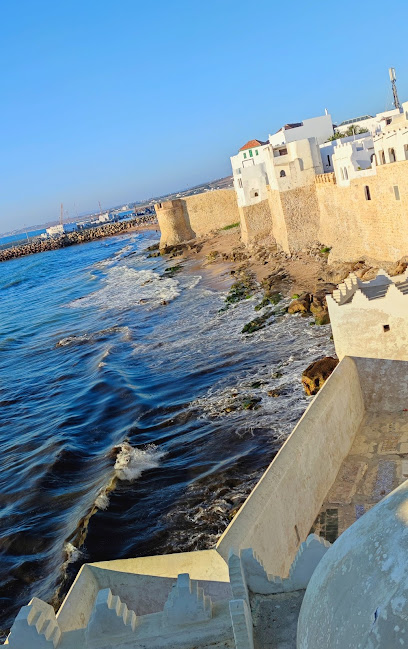
Asilah Marina Golf
Experience luxury and tranquility at Asilah Marina Golf, where stunning landscapes and premier golfing await in the heart of Morocco's scenic coastline.
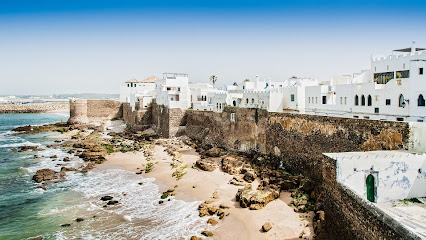
Casa Pepe
Experience authentic Moroccan cuisine at Casa Pepe, a delightful restaurant in the heart of Asilah's Plaza Zalaka, perfect for tourists exploring local flavors.
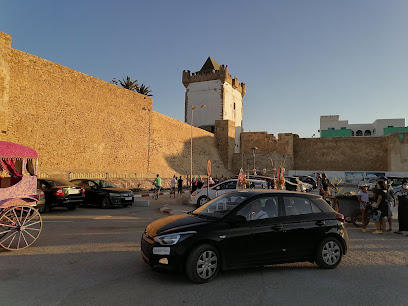
Hôtel Al Khaima
Discover comfort and community at Hôtel Al Khaima, your ideal base for exploring the coastal charm of Asilah, Morocco.

La Côte
Experience the vibrant flavors of Moroccan cuisine at La Côte, a must-visit restaurant in Asilah, Morocco, overlooking the beautiful Atlantic coast.
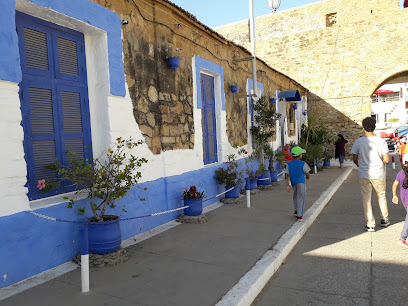
Camping Echrigui
Experience nature's paradise at Camping Echrigui, a serene campground in Asilah, Morocco, perfect for adventure seekers and relaxation enthusiasts.
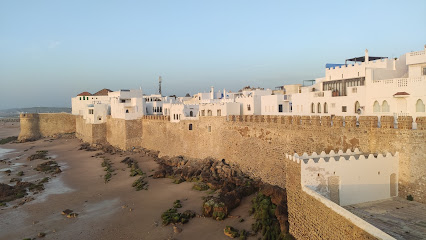
Asilah 32
Discover comfort and local flavor at Asilah 32, a charming hotel and serviced apartment in the heart of Asilah, Morocco.

Christina's House
Discover the beauty of Asilah with a stay at Christina's House, where traditional Moroccan hospitality meets modern comforts in a stunning coastal setting.
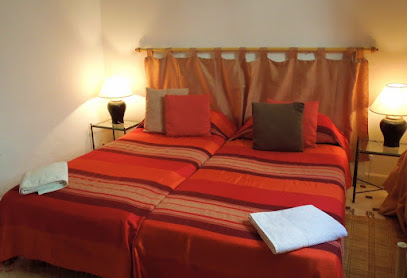
Plage de Asilah
Discover the serene beauty of Plage de Asilah, a stunning Moroccan beach perfect for relaxation, swimming, and capturing unforgettable coastal moments.
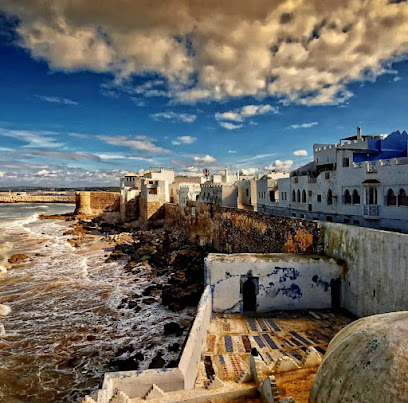
Sevilla Restaurant
Experience authentic Moroccan flavors at Sevilla Restaurant in Asilah, where culinary tradition meets contemporary charm for an unforgettable dining experience.
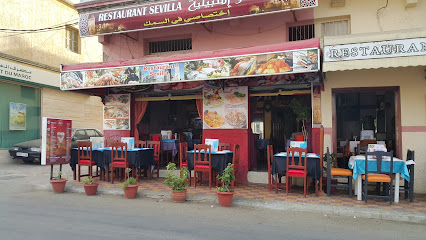
Camping Assada
Experience the beauty of nature at Camping Assada, a peaceful campground near Asilah, Morocco, perfect for relaxation and adventure.
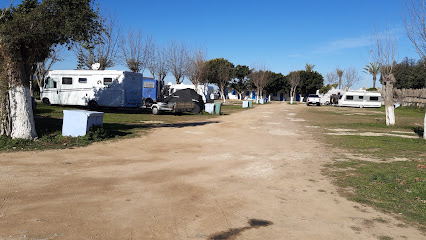
Alqamra Tower
Discover the historical charm of Alqamra Tower in Asilah, a stunning landmark offering cultural insights and breathtaking coastal views.
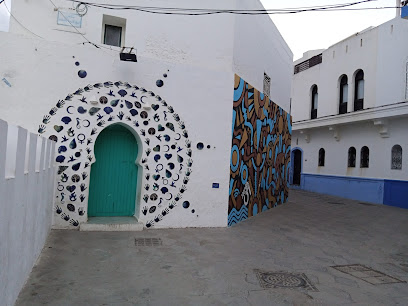
Dar Manara Medina d'asilah
Experience the charm of Asilah at Dar Manara Medina, a cozy hotel offering authentic Moroccan hospitality and a tranquil ambiance.
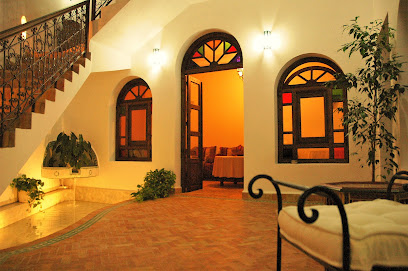
Unmissable attractions to see
Hercules Caves
Explore the majestic Hercules Caves in Tangier, a blend of natural beauty and rich mythology that captivates every traveler.
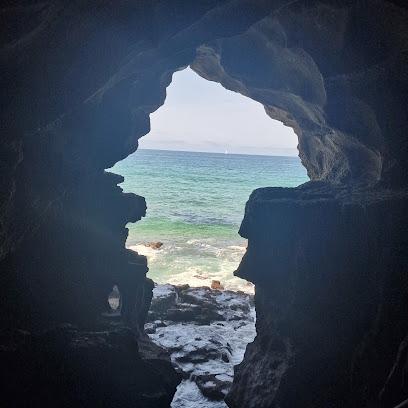
Grand Socco
Experience the vibrant culture and history at Grand Socco, Tangier's bustling heart where tradition meets modernity.
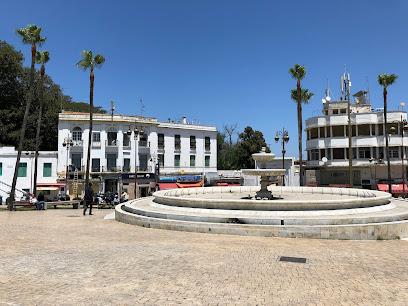
Rmilat Park
Discover the tranquil beauty of Rmilat Park in Tangier, a perfect escape for nature lovers and those seeking relaxation amidst stunning landscapes.
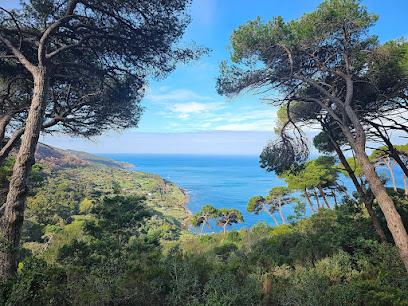
Villa Harris Park
Discover the natural beauty and serenity of Villa Harris Park in Tangier, a perfect retreat for relaxation and family fun amidst vibrant gardens and scenic views.
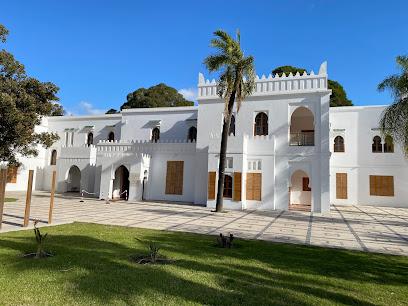
Villa Harris Park
Discover tranquility at Villa Harris Park, a serene oasis in Tangier with stunning Mediterranean views and lush gardens perfect for relaxation.
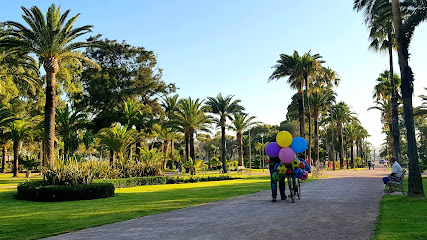
Kasbah Museum
Discover the rich history of Tangier at the Kasbah Museum, featuring diverse artifacts and stunning architecture in the heart of the ancient Medina.
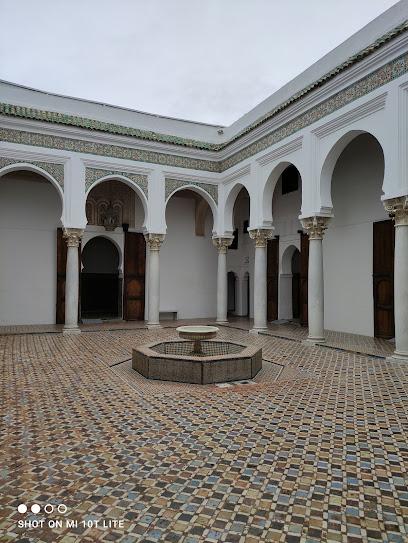
Tangier American Legation Museum
Explore the Tangier American Legation Museum, a unique fusion of cultures celebrating American-Moroccan history in a stunning architectural gem.
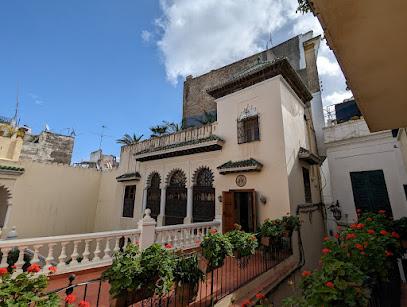
Cinéma Rif
Discover the cultural heart of Tangier at Cinéma Rif, where local charm meets cinematic magic in a historic movie theater.
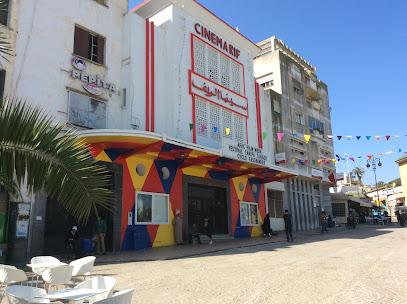
Krikia
Explore Krikia in Asilah, a captivating historical landmark with stunning views, vibrant culture, and rich Moroccan heritage.
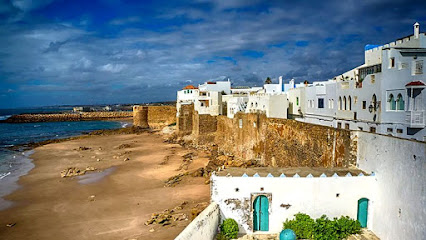
Merkala Beach
Experience the captivating beauty of Merkala Beach in Tangier, where golden sands meet azure waters, creating a perfect coastal paradise for all travelers.
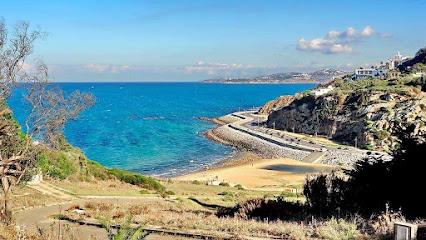
Route de la Plage Merkala
Experience the stunning beauty of Route de la Plage Merkala in Tangier, where the Mediterranean meets vibrant culture and unforgettable sunsets.
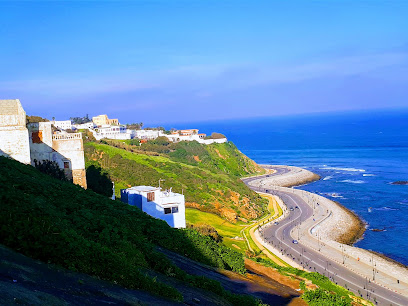
Tangier Grande Mosque
Explore the Grande Mosque in Tangier, a magnificent Islamic architectural marvel set in the vibrant Ancien Medina, rich in history and local culture.
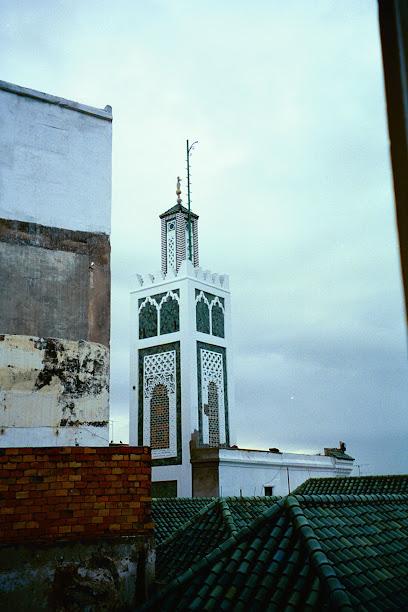
Gran Teatro Cervantes
Explore Tangier's rich history and vibrant culture at this unique Mediterranean destination, a true melting pot of civilizations and traditions.
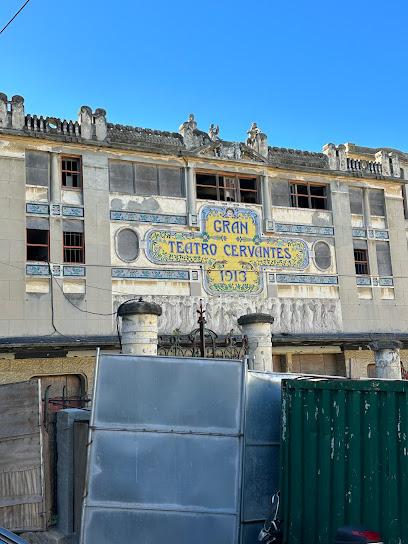
Playa Blanca
Experience the beauty of Playa Blanca in Tangier, a captivating beach where relaxation meets adventure along Morocco's stunning coastline.
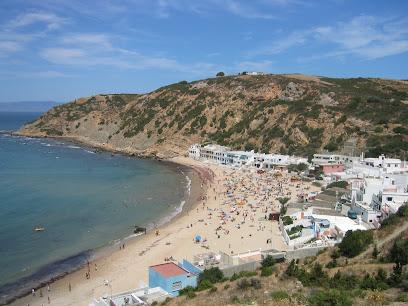
St. Andrew's Church
Explore the architectural and historical gem of St. Andrew's Church in Tangier, a tranquil oasis reflecting the city's rich cultural heritage.
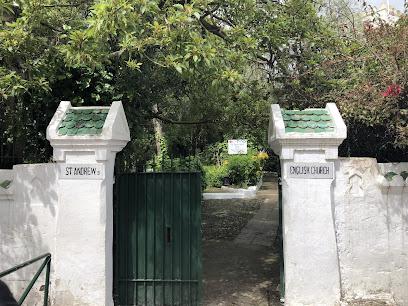
Essential places to dine
Casa García
Discover Casa García: Authentic Spanish flavors in Asilah's picturesque setting - perfect for food lovers seeking unique dining experiences.
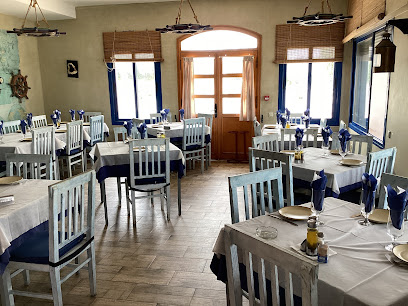
Restaurant Ali Baba
Savor authentic Moroccan cuisine at Restaurant Ali Baba in Asilah – where fast food meets tradition.
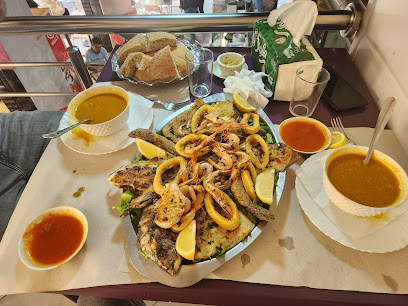
Restaurante Dar Al Maghrebia
Experience authentic Moroccan cuisine blended with Mediterranean and Spanish flavors at Restaurante Dar Al Maghrebia in Asilah.
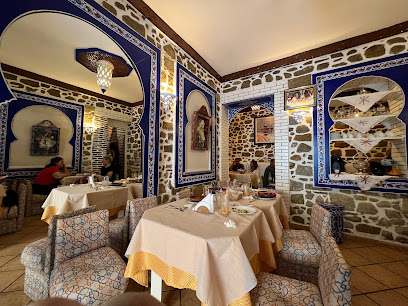
Casa Pepe
Discover authentic Moroccan flavors at Casa Pepe in Asilah - where every meal tells a story.
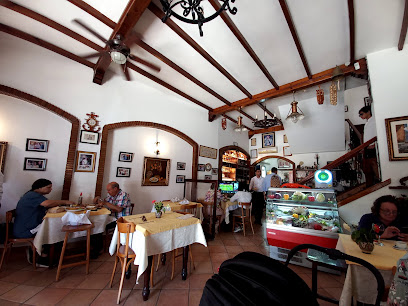
Port XIV Restaurant
Experience authentic Moroccan cuisine at Port XIV Restaurant in Asilah - where fresh ingredients meet rich cultural flavors.
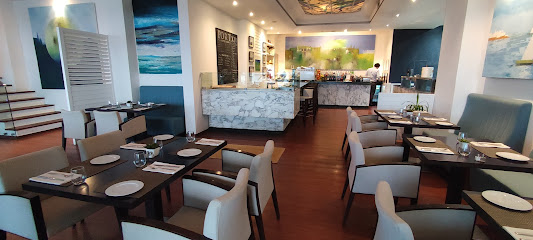
La Côte
Experience authentic Moroccan cuisine at La Côte, where fresh seafood meets stunning coastal views in beautiful Asilah.
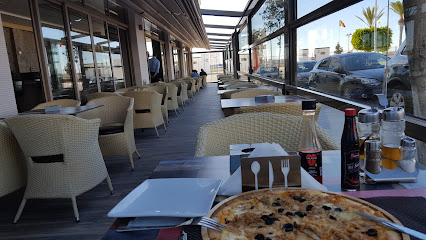
Idriss Arab Elegant Restaurant
Discover exquisite seafood delights at Idriss Arab Elegant Restaurant in Asilah - where tradition meets taste.
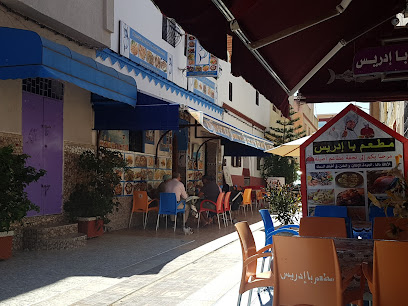
Restaurant Al Kasaba
Discover the vibrant flavors of Morocco at Restaurant Al Kasaba, where traditional cuisine meets modern tapas flair.
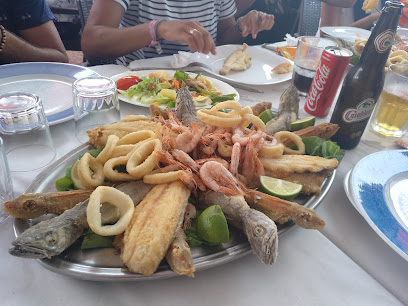
La Perle
Experience exquisite French cuisine at La Perle in Asilah, where culinary artistry meets Moroccan hospitality in an unforgettable setting.
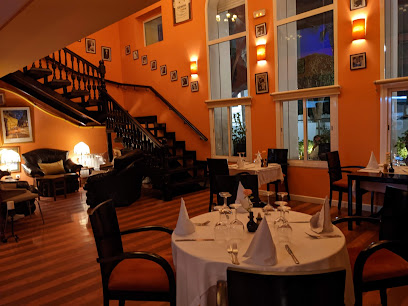
Restaurant La Place
Experience authentic Moroccan cuisine at Restaurant La Place in Asilah—where local flavors meet vibrant atmosphere.
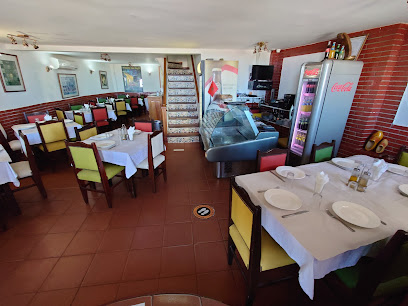
Le 32 Restaurant
Discover exquisite French cuisine at Le 32 Restaurant in Asilah, where culinary artistry meets local charm amidst stunning coastal views.
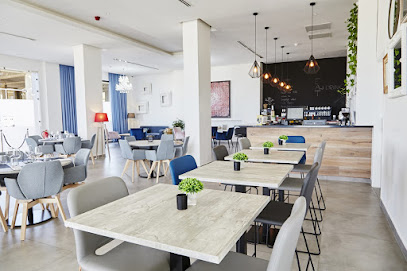
Sevilla Restaurant
Discover authentic Moroccan flavors at Sevilla Restaurant in Asilah - where tradition meets culinary excellence.
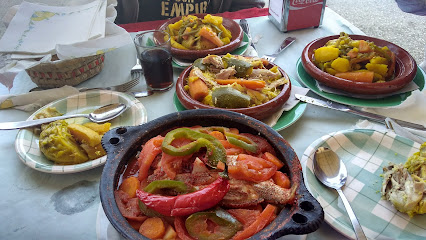
Restaurant Jawhara
Experience the vibrant flavors of Morocco at Restaurant Jawhara in Asilah, where fresh seafood meets traditional culinary excellence.
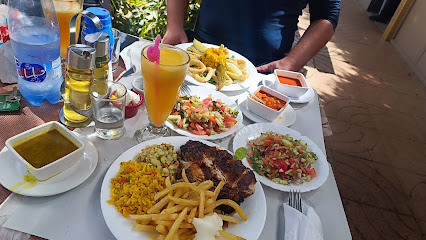
El Espigon
Experience authentic Moroccan seafood at El Espigon in Asilah, where fresh catches meet stunning ocean views.
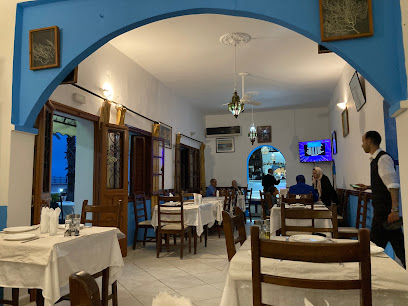
SIDQ Restaurant
Experience authentic Italian and Moroccan cuisine at SIDQ Restaurant in Asilah—where every meal tells a delicious story.
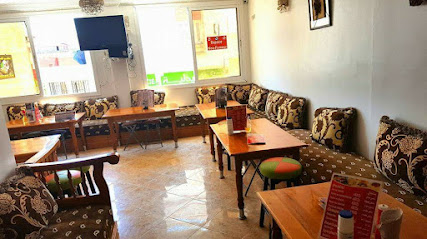
Markets, malls and hidden boutiques
Houssam Alimentation
Explore the flavors of Asilah at Houssam Alimentation, your go-to grocery store for local delicacies and fresh produce.
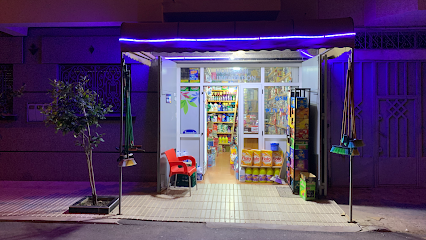
Liquor Store
Explore Asilah's Liquor Store: Your gateway to a curated selection of local wines and spirits in the heart of Morocco's picturesque coastal town.
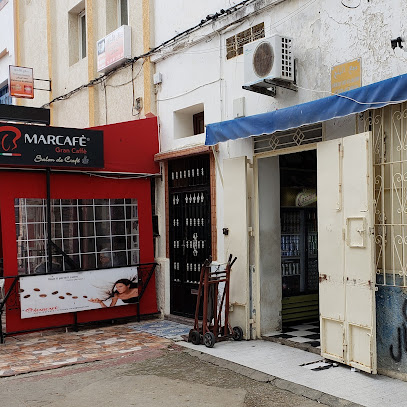
Bijouterie sara
Explore Bijouterie Sara in Asilah for exquisite handcrafted jewelry reflecting Morocco's rich cultural heritage and vibrant local artistry.
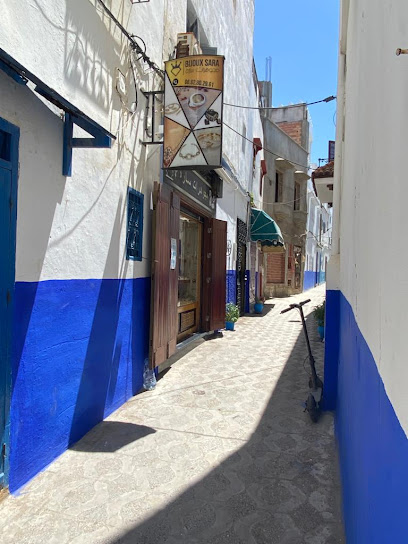
Hassan Shop
Discover unique clothing at Hassan Shop, a vibrant clothing store in Asilah, Morocco, blending tradition with modern fashion for every style.
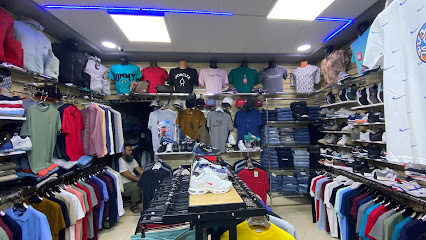
Los beticos de asilah shop
Explore Los Beticos de Asilah, a charming shoe store in the heart of Asilah's Medina, offering unique footwear and a delightful shopping experience.
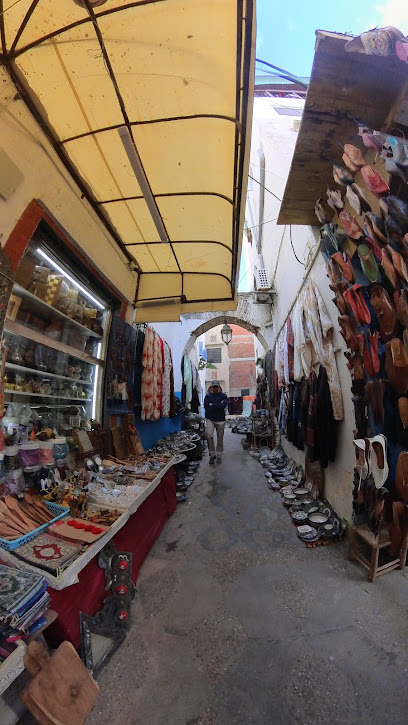
Asilah Home Goods Store
Explore the Asilah Home Goods Store for unique Moroccan handicrafts, vibrant textiles, and artistic treasures that celebrate local culture.
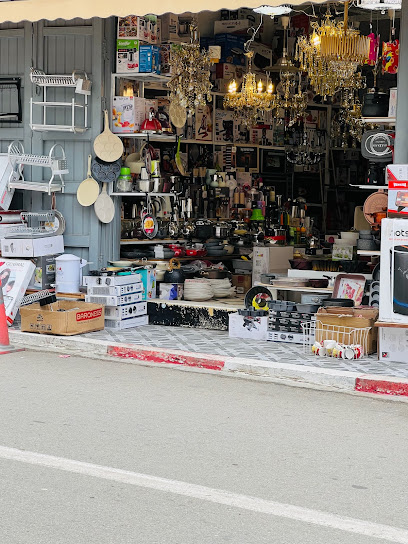
Azul Boutique
Discover the rich textures and colors of Moroccan textiles at Azul Boutique in Asilah, a must-visit fabric store for unique souvenirs.
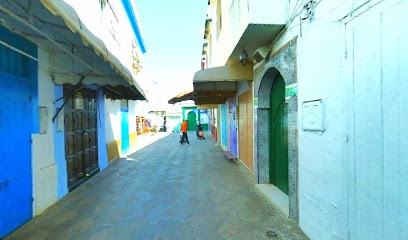
Fatima Market
Explore Fatima Market in Asilah for unique local products and immerse yourself in the vibrant culture of Morocco.
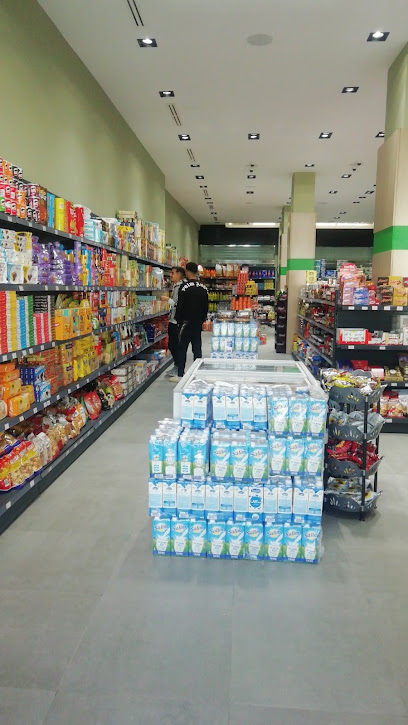
Droguerie Asilah
Discover Droguerie Asilah, a unique hardware store in Asilah, Morocco, offering a diverse range of tools and local crafts for every DIY enthusiast.

Boutique Orange
Discover Boutique Orange in Asilah for all your mobile needs, offering devices, accessories, and internet services to keep you connected.
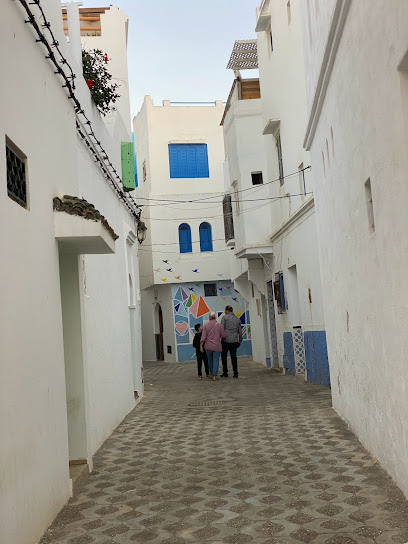
ENE
Discover authentic Moroccan craftsmanship and unique treasures at ENE, a charming store in the heart of Asilah.

Bazar Mostafa Cyramique
Experience the artistic brilliance of Moroccan ceramics at Bazar Mostafa Cyramique in Asilah, where tradition meets creativity.
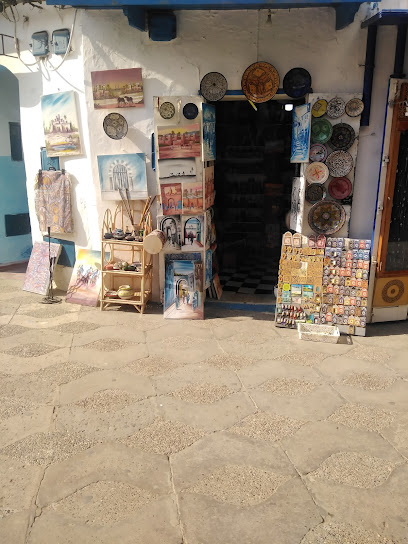
Mini Market Omar
Experience the local charm of Asilah at Mini Market Omar, where you can find authentic Moroccan products and friendly service.
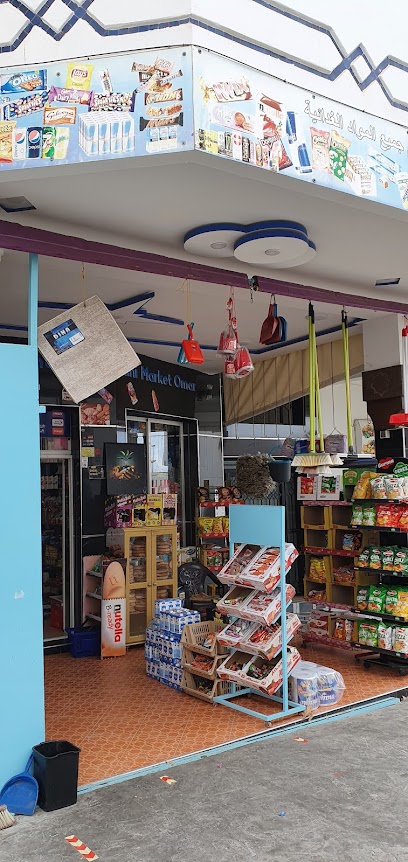
بوتيك نورالدين لملابس النساء الجاهزة
Discover the elegance of Moroccan fashion at Boutique Nour Eddine, your go-to women's clothing destination in Asilah.
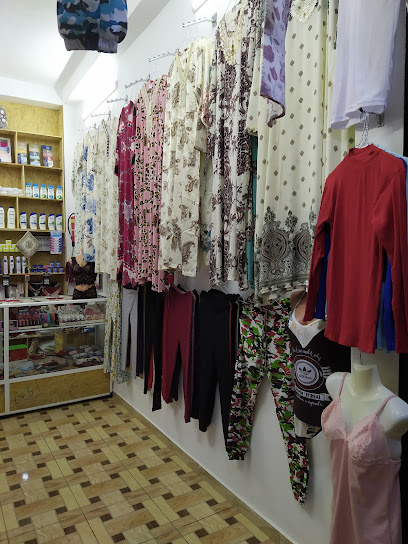
Fausto
Discover unique Moroccan fashion at Fausto, a charming clothing store in the heart of Asilah's Medina, perfect for stylish souvenirs.
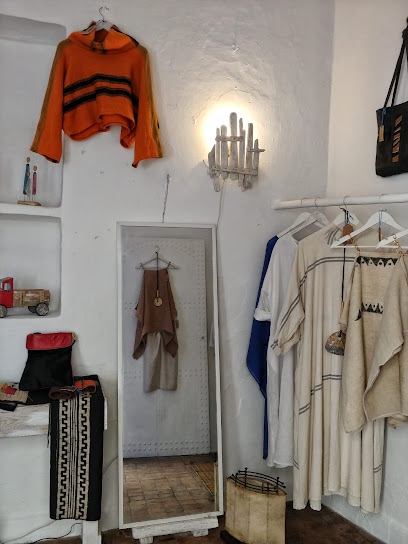
Essential bars & hidden hideouts
Casa García
Discover Casa García in Asilah for an unforgettable Spanish dining experience, offering authentic flavors in a vibrant atmosphere.
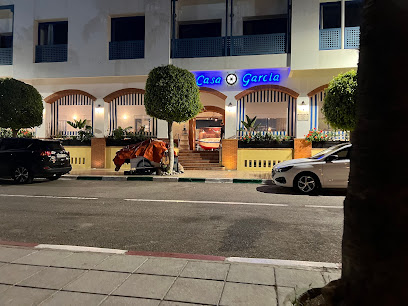
Restaurante Dar Al Maghrebia
Experience the rich flavors of Moroccan, Mediterranean, and Spanish cuisine at Restaurante Dar Al Maghrebia in the heart of Asilah.
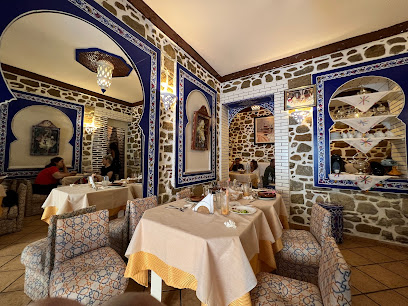
Port XIV Restaurant
Discover the culinary delights of Port XIV Restaurant in Asilah, where Moroccan flavors meet modern elegance for an unforgettable dining experience.
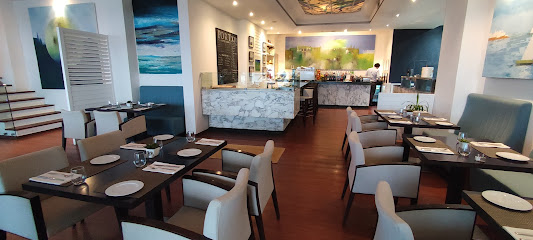
La Côte
Experience the flavors of Morocco at La Côte, a delightful restaurant in Asilah offering stunning ocean views and a diverse menu.
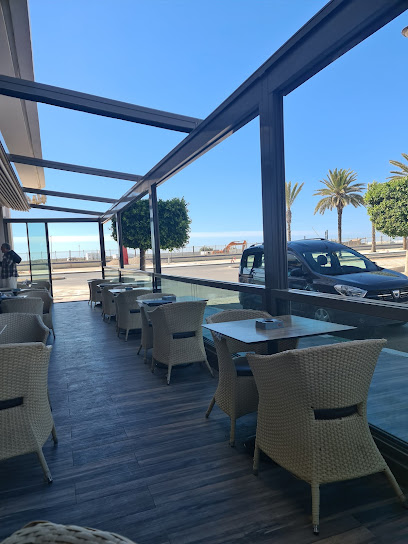
Restaurant Al Kasaba
Experience the vibrant flavors of Morocco at Restaurant Al Kasaba in Asilah, a must-visit destination for tapas lovers and food enthusiasts.
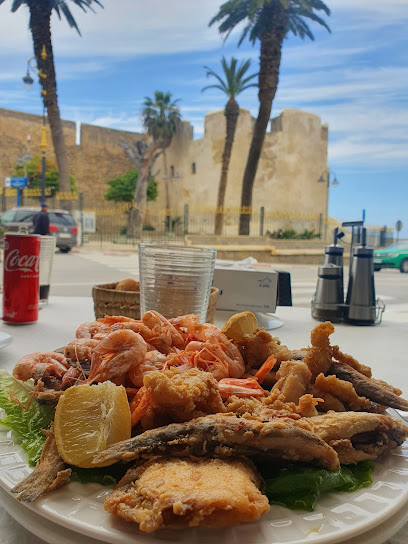
La Perle
Discover exquisite French cuisine with a Moroccan twist at La Perle in Asilah, a must-visit restaurant for culinary enthusiasts.
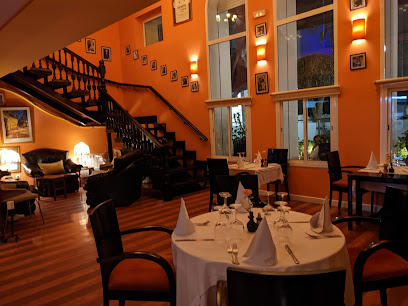
Le 32 Restaurant
Experience authentic French cuisine in the heart of Asilah at Le 32, where culinary excellence meets stunning coastal views.
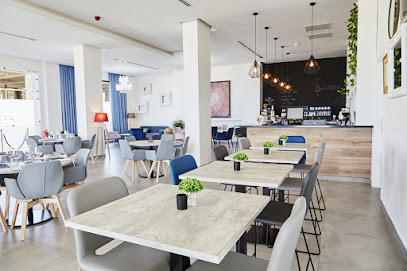
Sevilla Restaurant
Experience the essence of Moroccan cuisine at Sevilla Restaurant in Asilah, where taste meets tradition in a vibrant setting.
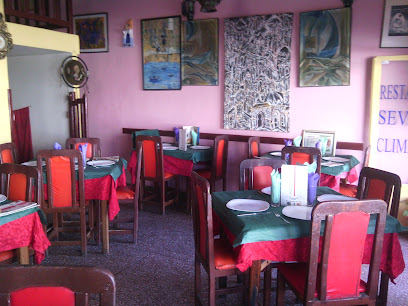
مقهى وصلة البوغاز
Experience the flavors of Morocco at Café Waslat Al-Boughaz in Asilah, where cozy ambiance meets delicious refreshments.
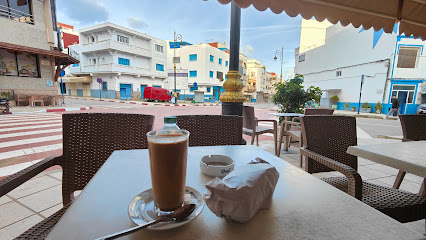
El Espigon
Discover the flavors of the ocean at El Espigon, Asilah's premier fish restaurant, offering fresh seafood and a stunning coastal atmosphere.
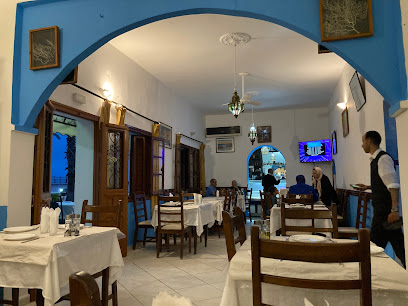
Cultural restaurant Andalusian
Experience the vibrant tastes of Andalusian culture in the heart of Asilah, where every dish tells a story.
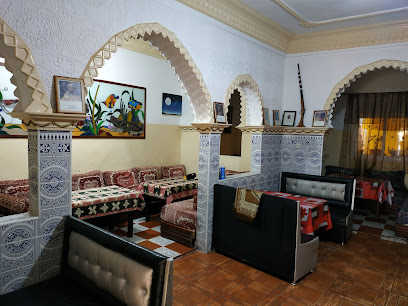
Café Lotus
Discover the serene ambiance and delightful flavors of Café Lotus, your perfect retreat in the heart of Asilah.
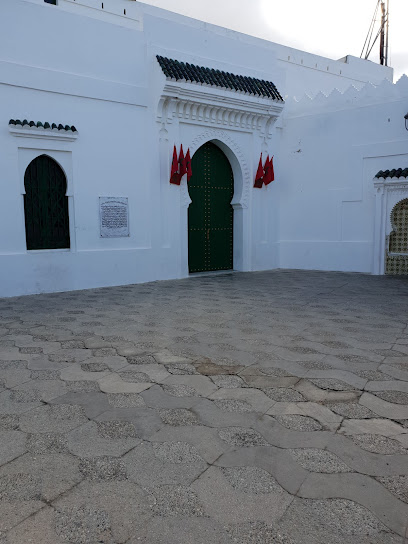
Cafe Lixus
Experience the vibrant flavors and cozy ambiance of Cafe Lixus in Asilah, where every visit is a delightful culinary adventure.
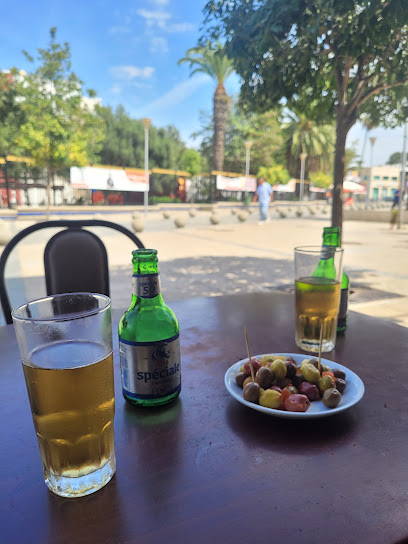
Restaurant La Palmera
Experience the essence of Moroccan cuisine with stunning ocean views at Restaurant La Palmera in Asilah, a culinary gem along the coast.
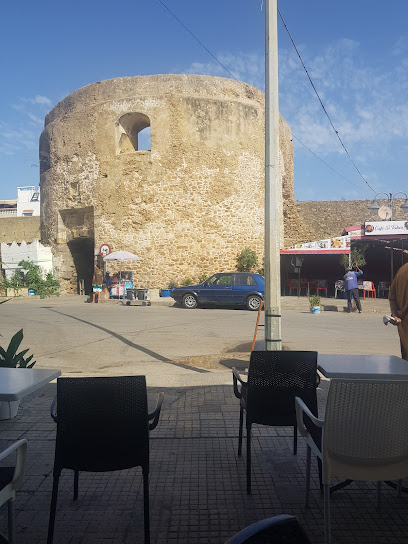
Chiringuito la jaima
Discover the vibrant atmosphere of Chiringuito la Jaima, a stand bar in Asilah offering local flavors and stunning ocean views.
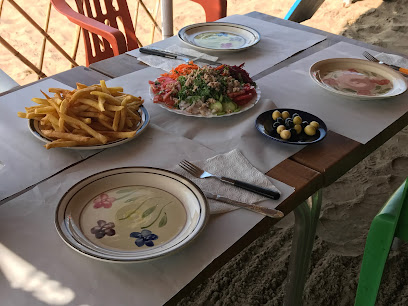
Local Phrases
-
- HelloSalam
[sa-laam] - GoodbyeBeslama
[bes-la-ma] - YesNaam
[na-am] - NoLa
[la] - Please/You're welcomeAfak
[a-fak] - Thank youShukran
[shuk-ran] - Excuse me/SorrySmahli
[sma-hli] - How are you?Labas?
[la-bas] - Fine. And you?Labas. Wlak?
[la-bas. w-lak] - Do you speak English?Tehed Anglizi?
[te-hed an-gli-zi] - I don't understandMa fhemtch
[ma fhemtsh]
- HelloSalam
-
- I'd like to see the menu, pleaseBghit nchuf lmenu, afak
[b-ghit n-chuf l-me-nu, a-fak] - I don't eat meatMa nklch lbahloul
[ma nk-lsh l-ba-hloul] - Cheers!Bssahtek
[bs-sah-tek] - I would like to pay, pleaseBghit n'dfa, afak
[b-ghit n-dfa, a-fak]
- I'd like to see the menu, pleaseBghit nchuf lmenu, afak
-
- Help!Aidez-moi!
[ai-dez-moi] - Go away!Ruh!
[ruh] - Call the Police!Dkhoul l'barra!
[dkhoul l-bar-ra] - Call a doctor!Dkhoul t-tabib!
[dkhoul t-ta-bib] - I'm lostGhadi!
[gha-di] - I'm illAna mrid
[a-na m-rid]
- Help!Aidez-moi!
-
- I'd like to buy...Bghit nshri...
[b-ghit n-shri] - I'm just lookingAna ghir bghit nchuf
[a-na ghir b-ghit n-chuf] - How much is it?Chhal?
[sh-hal] - That's too expensiveHadshi ghali
[had-shi gha-li] - Can you lower the price?Wach t'khdem l'fouss?
[wa-ch t-kh-dem l-fouss]
- I'd like to buy...Bghit nshri...
-
- What time is it?Chhal lwaqt?
[sh-hal l-waqt] - It's one o'clockSaa wahed
[sa-a wa-hed] - Half past (10)Saa w nos
[sa-a w nos] - MorningSbah
[s-bah] - AfternoonDohr
[do-hr] - EveningMassa
[mas-sa] - YesterdayHier
[hi-er] - TodayLyom
[ly-om] - TomorrowGhad
[ghad] - 1Wahed
[wa-hed] - 2Jouj
[jouj] - 3Tleta
[t-le-ta] - 4Arba
[ar-ba] - 5Khamsa
[kham-sa] - 6Setta
[set-ta] - 7Sbaa
[s-baa] - 8Tmania
[tma-ni-a] - 9Ttes3a
[t-te-sa] - 103achra
[3a-chra]
- What time is it?Chhal lwaqt?
-
- Where's a/the...?Wash kayn...
[wa-sh kayn] - What's the address?Shno lwasfa?
[sh-no l-was-fa] - Can you show me (on the map)?Wach t'3ni (3la lkhariita)?
[wa-ch t-3-ni 3-la l-kha-rii-ta] - When's the next (bus)?Meraycht khasni nqdm?
[me-ra-ycht khas-ni n-qdm] - A ticket (to ....)Tiket (ila ....)
[ti-ket (i-la)]
- Where's a/the...?Wash kayn...
History of Asilah
-
Asilah's history dates back to the Phoenician era, around the 10th century BCE, when it served as a trading post. The city later fell under Roman control, becoming a part of the Roman province of Mauretania Tingitana. Archaeological evidence, including remnants of fortifications and ancient coins, points to a bustling settlement engaged in trade across the Mediterranean.
-
In the 8th century, Asilah was incorporated into the expanding Islamic empire during the Islamic conquest of the Maghreb. It became an important site under the Idrisid Dynasty, which was the first Moroccan Islamic state. The city's strategic location along the Atlantic coast made it a key point for the spread of Islam and trade.
-
In 1471, Asilah was captured by Portuguese forces, marking the beginning of a significant European influence on the city. The Portuguese fortified Asilah, constructing robust walls and fortresses that are still visible today. This period saw the city becoming a crucial outpost for Portuguese maritime trade and military operations.
-
The Saadian dynasty reclaimed Asilah in 1549, after nearly a century of Portuguese control. The city was restored to Moroccan rule, and efforts were made to strengthen its defenses and revitalize its economy. Asilah played a pivotal role in the Saadian campaign against Portuguese enclaves in Morocco.
-
Throughout the 17th and 18th centuries, Asilah became a haven for pirates and corsairs, who used it as a base for raiding European ships. This period of lawlessness led to economic decline and depopulation, as the city struggled to maintain its former prosperity. The local population dwindled, and many of the city's structures fell into disrepair.
-
In 1912, Asilah became part of the Spanish Protectorate in Morocco. The Spanish administration invested in the city's infrastructure, building schools, roads, and modern amenities. This period also saw a cultural exchange between Spanish and Moroccan communities, influencing the city's architecture, cuisine, and daily life.
-
After Morocco gained independence in 1956, Asilah experienced a cultural and economic revival. The city underwent significant restoration efforts, particularly in its historic medina. The annual Asilah Arts Festival, established in 1978, has transformed the city into a vibrant cultural hub, attracting artists, scholars, and tourists from around the world.
Asilah Essentials
-
Asilah is located on the Atlantic coast of Morocco, about 40 kilometers south of Tangier. The nearest international airport is Tangier Ibn Battouta Airport (TNG). From the airport, you can take a taxi or a bus to Asilah. The journey by taxi takes around 30-40 minutes, while the bus might take about an hour. Alternatively, you can take a train from major Moroccan cities like Casablanca, Rabat, or Tangier directly to Asilah. The train station is conveniently located near the town center.
-
Asilah is a small town, and most of its attractions are within walking distance. For longer trips within the town or to nearby areas, taxis are readily available and relatively inexpensive. There are also public buses that connect Asilah with other towns and cities. If you prefer more flexibility, renting a car is a good option, but be mindful of local driving customs and traffic rules.
-
The official currency in Morocco is the Moroccan Dirham (MAD). Credit cards are accepted in many hotels, restaurants, and larger shops, but it is advisable to carry cash, especially in smaller establishments and markets. ATMs are available in Asilah, and you can withdraw cash using international bank cards. Always have some smaller denominations for tips and small purchases.
-
Asilah is generally a safe destination for tourists. However, it is advisable to take standard precautions. Avoid walking alone at night in unfamiliar areas and keep an eye on your belongings in crowded places. While Asilah does not have specific high-crime areas targeting tourists, it is always best to stay vigilant and aware of your surroundings.
-
In case of an emergency, dial 19 for police assistance or 15 for medical emergencies. The local police station and medical facilities are available in Asilah. It is recommended to have travel insurance that covers medical emergencies. For minor health issues, there are pharmacies in the town where you can purchase over-the-counter medications.
-
Fashion: Do dress modestly, particularly when visiting religious sites. Avoid wearing overly revealing clothing. Religion: Do respect local customs and traditions. Always cover your head when entering mosques. Public Transport: Do be respectful and give up your seat to elderly passengers. Don't eat or drink on public transport. Greetings: Do greet people with a handshake. A light touch to the heart with your right hand after shaking hands is a sign of respect. Eating & Drinking: Do try local delicacies and accept food offerings graciously. Don't refuse hospitality, as it is considered impolite.
-
To experience Asilah like a local, visit the local souk (market) where you can buy fresh produce, spices, and traditional Moroccan goods. Engage with locals, as they are often friendly and willing to share stories about the town's history and culture. Don't miss the annual Asilah Arts Festival if you're visiting in August, which showcases local and international artists. For a unique experience, take a walk along the city walls and enjoy the stunning views of the Atlantic Ocean.
Nearby Cities to Asilah
-
Things To Do in Tangier
-
Things To Do in Tetouan
-
Things To Do in Chefchaouen
-
Things To Do in Europa Point
-
Things To Do in Gorham's Cave Complex
-
Things To Do in St. Michael's Cave
-
Things To Do in Queensway Quay Marina
-
Things To Do in Alameda Botanic Gardens
-
Things To Do in Main Street
-
Things To Do in Gibraltar
-
Things To Do in Casemates Square
-
Things To Do in Moorish Castle
-
Things To Do in Catalan Bay
-
Things To Do in Cádiz
-
Things To Do in Ronda









